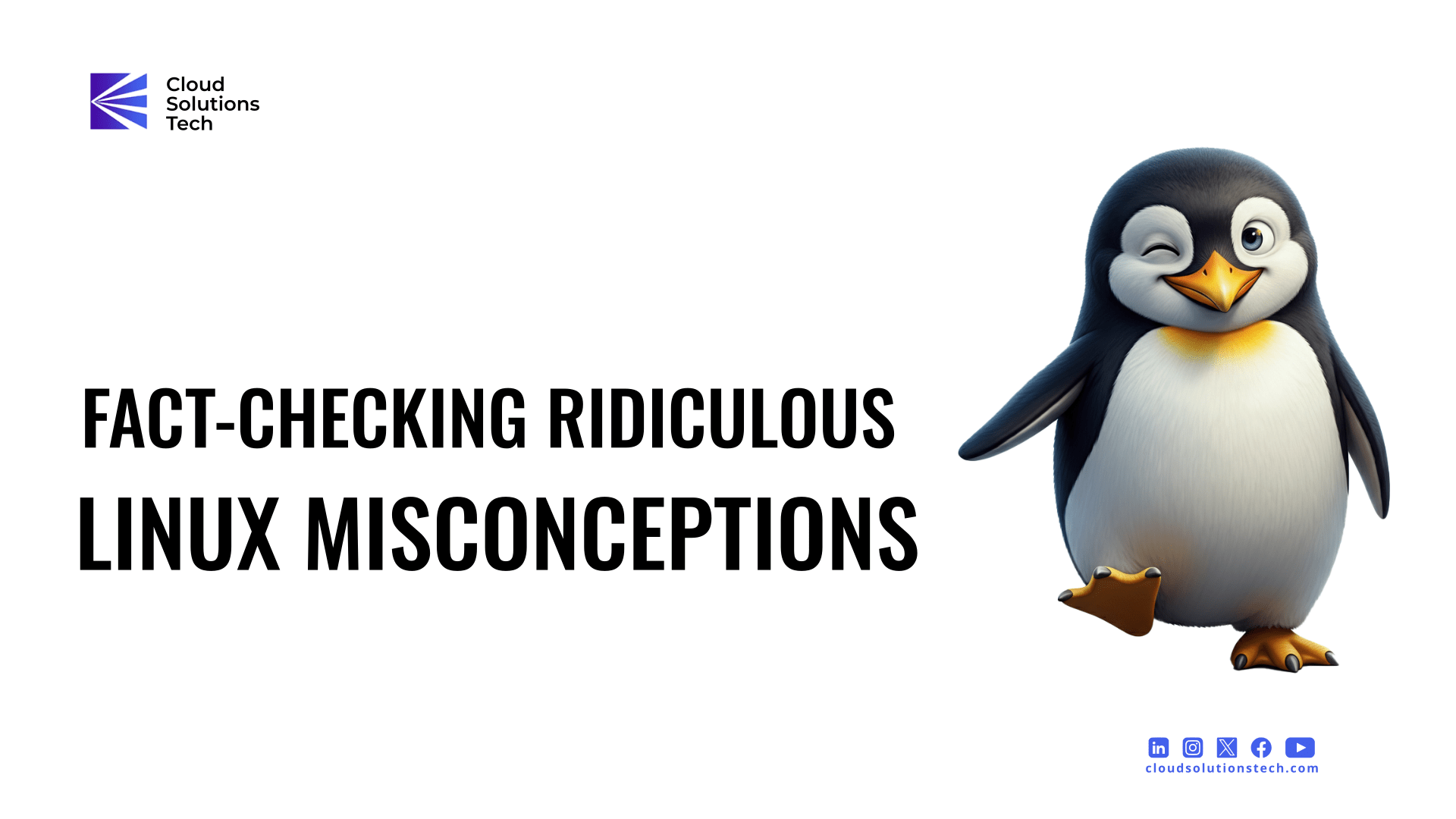Fact-Checking Ridiculous Linux Misconceptions
The first encounter with Linux often sparks curiosity, and sometimes even fascination.
Yet, it is not without a myriad of questions and cloud of false impressions.
Linux Is Only For Programmers And Tech Geeks
While Linux has long been favored by developers and tech enthusiasts for its flexibility and customization options, it is by no means limited to this demographic. Linux distributions cater to a wide range of users, from casual home users to enterprise professionals. Whether you’re a student, a graphic designer, a small business owner, or a system administrator, there’s a Linux distribution tailored to your needs. Additionally, the Linux community is known for its inclusivity and willingness to help newcomers get started, making Linux accessible to users of all skill levels.
Linux Is Too Complicated For Average Users
While Linux may have had a reputation for being complex in the past, modern Linux distributions have made significant strides in usability and user-friendliness. Many distributions, such as Ubuntu and Linux Mint, come with intuitive graphical user interfaces (GUIs) that make them as easy to use as Windows or macOS. Additionally, package managers like apt and graphical software centers simplify the process of installing and updating software, making Linux more accessible than ever before.
Linux Lacks Software Compared To Windows And Macos
It is true that Linux may not have as many commercial software offerings as Windows, nonetheless, the open-source nature of Linux has led to a vast ecosystem of free and open-source software (FOSS) that covers almost every imaginable use case. From office suites like LibreOffice to graphic design tools like GIMP and professional-grade video editors like Blender, Linux offers a wide range of high-quality software that can rival proprietary alternatives. Moreover, many popular applications, such as Google Chrome and Spotify, are available for Linux, further dispelling the myth of a software shortage.
Linux Is Riddled With Security Vulnerabilities
Contrary to popular belief, Linux is inherently more secure than other operating systems like Windows due to its Unix-based architecture and robust security features. Linux distributions receive regular security updates and patches, and the open-source nature of Linux allows for rapid identification and mitigation of security vulnerabilities by the community. Additionally, Linux’s strong emphasis on user permissions and sandboxing helps prevent malicious software from causing widespread damage. While no operating system is entirely immune to security threats, Linux’s security track record speaks for itself.
Linux Is Incompatible With Hardware And Peripherals
Modern Linux distributions support a wide range of hardware, again, thanks to continuous development and community contributions. Most major manufacturers provide Linux drivers for their devices, ensuring seamless compatibility. Even if you encounter an unsupported device, the active community often has workarounds or alternative solutions.
You Need A Powerful Computer To Run Linux
Linux distributions vary in resource requirements, catering to computers of all specs. Lightweight distributions like Lubuntu run smoothly on older machines, making them ideal for breathing new life into aging hardware. Even resource-intensive tasks like video editing can be handled efficiently on modern Linux systems.
Linux Doesn’t Have Good Customer Support
The beauty of Linux lies in its lively and helpful community. Online forums, mailing lists, and websites offer a wealth of support and troubleshooting resources. Additionally, many distributions have dedicated support channels and even paid support options for businesses.
Linux Is Not Suitable For Enterprise Use
Fact: On the contrary, Linux is widely used in enterprise environments around the world, powering everything from web servers and database servers to cloud infrastructure and supercomputers. Major corporations like Google, Amazon, and Facebook rely heavily on Linux for their operations, citing its stability, scalability, and security as key factors in their decision to adopt Linux. Additionally, many enterprise-grade Linux distributions, such as Red Hat Enterprise Linux and SUSE Linux Enterprise Server, offer long-term support (LTS) and enterprise-grade support options to meet the needs of business customers.
Linux Is Not As Stable As Other Operating Systems
I wonder where this ridiculous myth started from, because it is absolutely no news that Linux is renowned for its stability and reliability, making it the operating system of choice for mission-critical applications and infrastructure. The Linux kernel is rigorously tested and maintained by thousands of developers around the world, ensuring that it remains stable and secure under a wide range of conditions. Additionally, Linux distributions undergo extensive testing and quality assurance before being released to the public, further enhancing their stability and reliability.
Need a lightweight system for your old laptop? Craving a multimedia powerhouse for your creative endeavors? One of the biggest advantages of Linux is its flexibility and versatility. It can adapt to your needs, whether you’re a casual user, a power user, or somewhere in between.
And that’s not even the end: this flexibility goes beyond software too, it extends to the community, for the community.
Why settle for limitations, and rumors?
